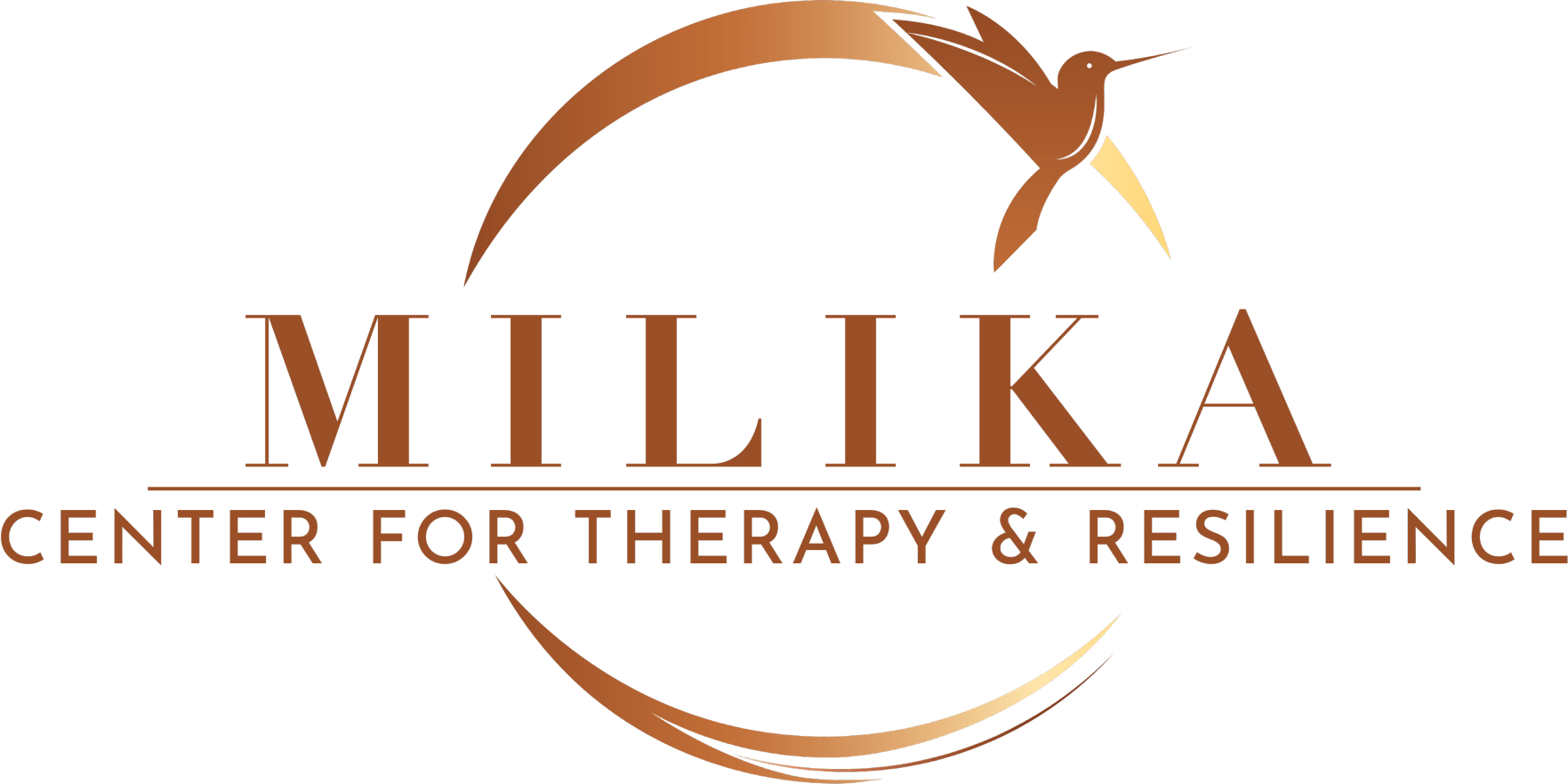At MILIKA, Maternal Mental Health Is A PRIORITY. Here Is Why:
Percent of mothers who suffer from a mental health disorder, like depression, during pregnancy or postpartum period.
Number of mothers who suffer from a maternal mental health disorder in the U.S. every year
Of the those affected by maternal mental health, the percent of mothers that go UNTREATED.
MOM-mentum: Building Resilience in Motherhood
MOM-mentum is a resilience skill-building program designed specifically for mothers, offering practical strategies to help moms flourish and lead fulfilling lives, both for themselves and for their families. By integrating evidence-based interventions from cognitive behavioral therapy (CBT), mindfulness, and positive psychology, MOM-mentum equips mothers with the tools they need to thrive amidst the demands of modern parenthood.
What are the benefits of the MOM-mentum resilience skill-building program?
More Patience
Learning resilience skills gives moms the tools to be patient and composed in moments of stress and challenges, leading to more positive parenting practices.
Improved Coping Strategies
Resilience training equips women with practical tools and techniques to manage difficult emotions, thoughts, and situations.
Better Emotional Regulation
By developing resilience, women can better regulate their emotions, leading to reduced symptoms of anxiety and depression.
Increased Self Efficacy
Building resilience fosters a sense of self-efficacy and confidence in one's ability to navigate the demands of motherhood.
More Self-Compassion
Through self-compassion, mothers learn to offer themselves kindness and forgiveness when mistakes occur, recognizing that they like other moms who are also navigating the challenges and joys of motherhood.
Better Parent-Child Bond
Strengthening resilience can positively impact the mother-infant relationship by promoting secure attachment and responsive caregiving.
What kind of skills are taught in the MOM-mentum program?
Constructive Mindset Shifts
Identifying and challenging negative/catastrophic thought patterns to promote a more balanced and realistic outlook. This helps to 're-wire' the brain to be optimistic and versatile.
Manage Trauma Reminders
Providing mothers with strategies to identify and cope with trauma reminders can help them navigate triggers that may arise during pregnancy, childbirth, and beyond.
Nurture Self-Compassion & Gratitude
Through self-compassion and gratitude exercises, mothers learn to foster self-kindness, a strong inner voice, and have a growth mindset.
Holistic Stress Relief
Learning relaxation exercises, mindfulness, and breathing techniques to reduce physiological and psychological stress.
Practical Problem-Solving for Parenthood
Developing effective problem-solving strategies to address challenges and obstacles encountered across motherhood.
Social Support Enhancement
Exploring strategies to build and maintain social support networks, fostering connections with other mothers and supportive individuals.
Communication Skills
Building communication skills to express needs and boundaries effectively, both within personal relationships and with healthcare providers.
Time Management Practices
Helping mothers prioritize tasks, set realistic goals, and manage their time effectively can reduce feelings of overwhelm and increase their sense of control over their daily lives.
What is the Difference Between Resilience Skills Training & Therapy?
While both resilience skills program and therapy aim to promote psychological well-being, they differ in their purpose, scope, goals, approach, and target audience.
Purpose
Resilience skills training program is primarily designed to equip individuals with practical techniques and strategies to enhance their resilience in coping with stress, adversity, and challenges
Therapy aims to address psychological issues, emotional distress, mental health disorders, and interpersonal difficulties through various therapeutic interventions.
Scope
Resilience skills training program is typically delivered in a structured format over a limited number of sessions (e.g., about 10 sessions), emphasizing skill acquisition and practical application in everyday life.
Therapy can be short-term or long-term depending on the complexity of the issues being addressed, involving in-depth exploration, processing of emotions, and ongoing support tailored to the individual's needs.
Goal
Both aim to promote psychological well-being, but they differ in their specific goals.
Resilience skills training focuses on building individual capacity to bounce back from setbacks, manage stress effectively, foster positive thinking patterns, and maintain overall well-being.
Therapy aims to alleviate symptoms of psychological distress, improve emotional regulation, enhance self-awareness, promote insight into behavioral patterns, and facilitate personal growth and healing by addressing underlying emotional issues and mental health concerns.
Approach
Both incorporate evidence-based approaches; however:
Resilience skills training is psychoeducational in nature, with skill-building exercises, as well as cognitive-behavioral and mindfulness strategies integrated to foster adaptive coping mechanisms and enhance resilience.
Therapy does a deeper dive into evidence-based therapeutic modalities such as cognitive-behavioral therapy (CBT), interpersonal therapy, dialectical behavior therapy (DBT), or others tailored to address specific mental health concerns and promote emotional well-being.
Target Audience
Resilience training is often targeted at the general population seeking to enhance their ability to cope with life stressors and improve overall resilience.
Therapy is tailored to individuals experiencing specific mental health challenges, such as depression, anxiety, trauma, or relationship issues.
When burnout starts to creep,
And balance feels like a dream you can't keep,
Longing for moments of calm and light,
Parenting doubts clouding your sight,
Fear not, you can stay on track,
because MOM-Memtum is here to help you bounce right back!
MOM-mentum, your personlized path to a
resilient motherhood.

![[Editable version] Copy of Kanchi Wijesekera_90 Minute Wireframe (2) [Editable version] Copy of Kanchi Wijesekera_90 Minute Wireframe (2)](https://www.milikacenterfortherapyandresilience.com///wp-content/uploads/2024/05/Editable-version-Copy-of-Kanchi-Wijesekera_90-Minute-Wireframe-2.png)
ABOUT US
Why Work With Milika Center For Therapy & Resilience
Here at Milika Center for Therapy & Resilience, we understand that seeking help for mental health concerns is a courageous and transformative step.
Whether you're facing stress, anxiety, depression, significant life changes, or are on a quest for personal growth, know that you are not alone. Our team is here to offer support and expert guidance every step of the way. Together, we can work towards building unshakable resilience, fostering self-awareness, and unlocking the potential for positive change.
As the MILIKA Founder and Clinical Director, I am committed to fostering a safe and nurturing environment where individuals can embark on their journey towards healing and personal growth.
Thank you for choosing us as your partner in your mental wellness journey. We are so honored and excited to be here for you and help you unleash your inner resilience!
Warmest Regards,
Dr. Kanchi
Meet The Team

Clinical Director
Kanchi Wijesekera, Ph.D.

Clinical Psychologist
Venus Mirbod, Psy.D.

Care Coordinator
Hailee Strong, M.A.

Yoga Instructor
Laily Gallo
Ready to get started?
Ready to get started? Start your journey towards resilience and mental well-being today by contacting us to schedule a consultation.

